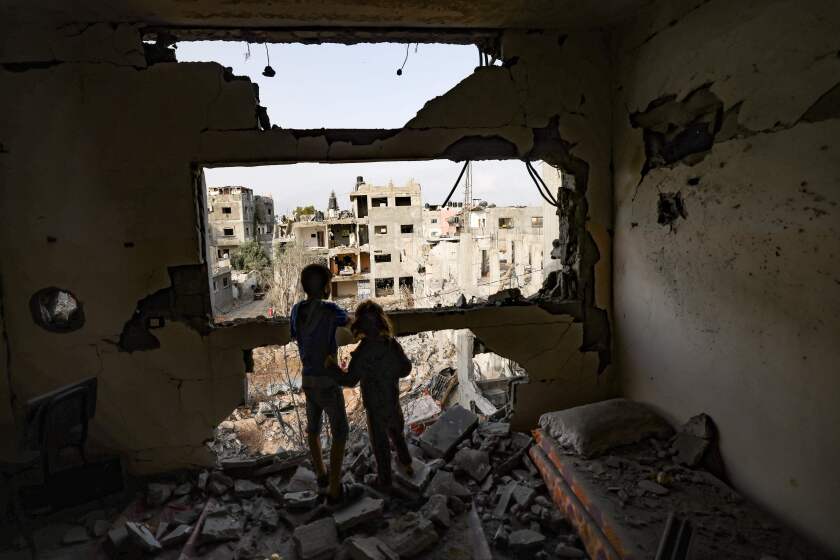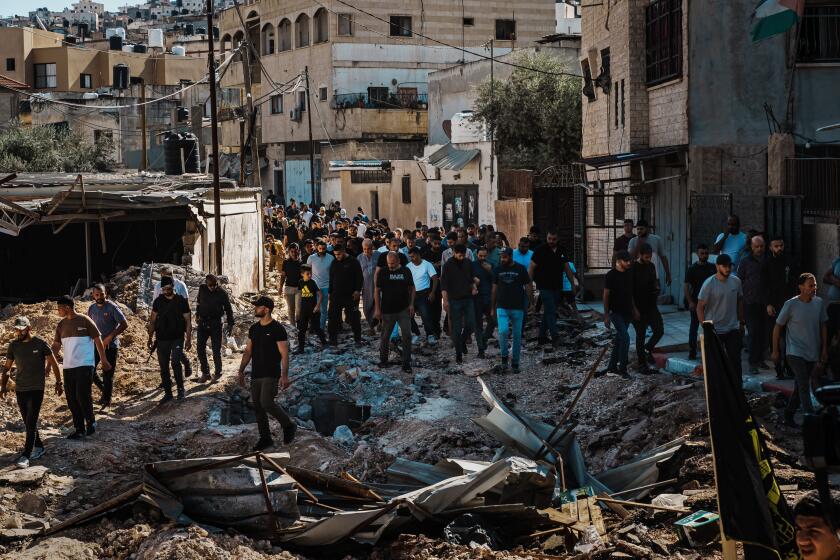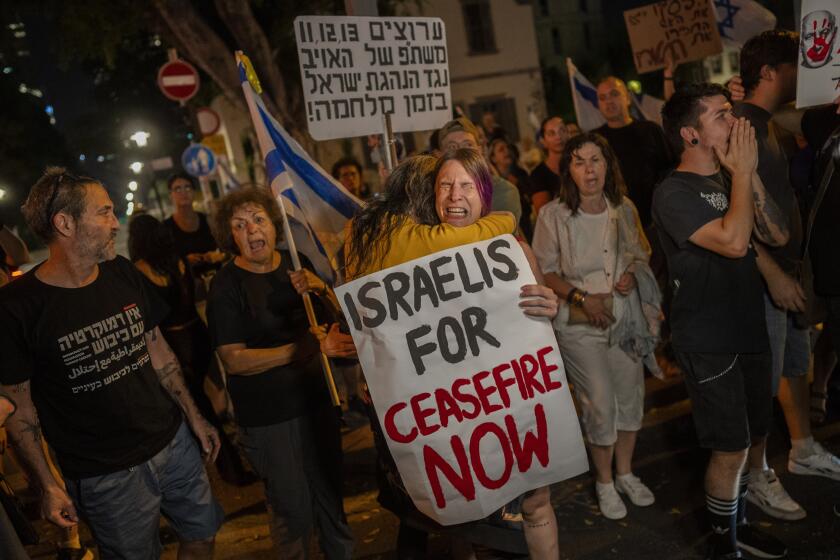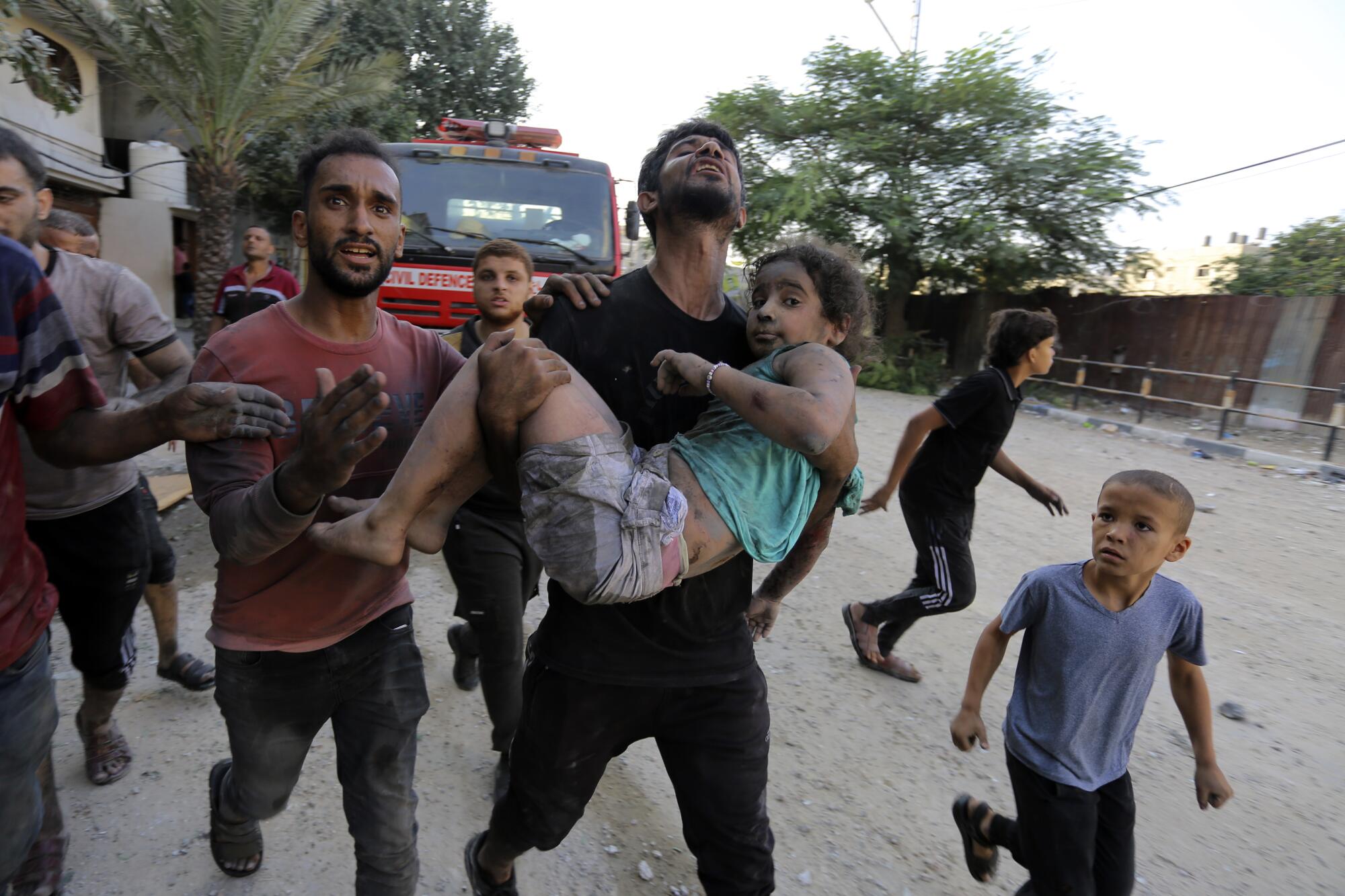
- Share via
TEL AVIV — As dawn breaks over the Mediterranean, surfers paddle out, scanning the pink horizon for waves.
Forty miles south, war is raging in Gaza, with tens of thousands killed and injured and a third of the enclave crushed to rubble.
But here in Tel Aviv, the conflict feels deceptively distant. The sky is cloudless and devoid of warplanes. People commute to work and school. They walk their dogs. Crowd bars. Relax at yoga.
Newspapers and television channels feature near-constant coverage of the surprise Oct. 7 Hamas attack on Israel — the 1,200 people who were killed that day, the scores of hostages who were dragged to Gaza and the army of reservists who have been called up to fight Israel’s retaliatory war.
But the toll of that war on the civilians of Gaza is largely out of sight. Most news outlets here do not prominently feature the conflict’s soaring death count or the growing threat of hunger and disease. They publish images of Israeli soldiers seated atop tanks and storming into buildings, but not the victims of Israeli bullets and bombs.
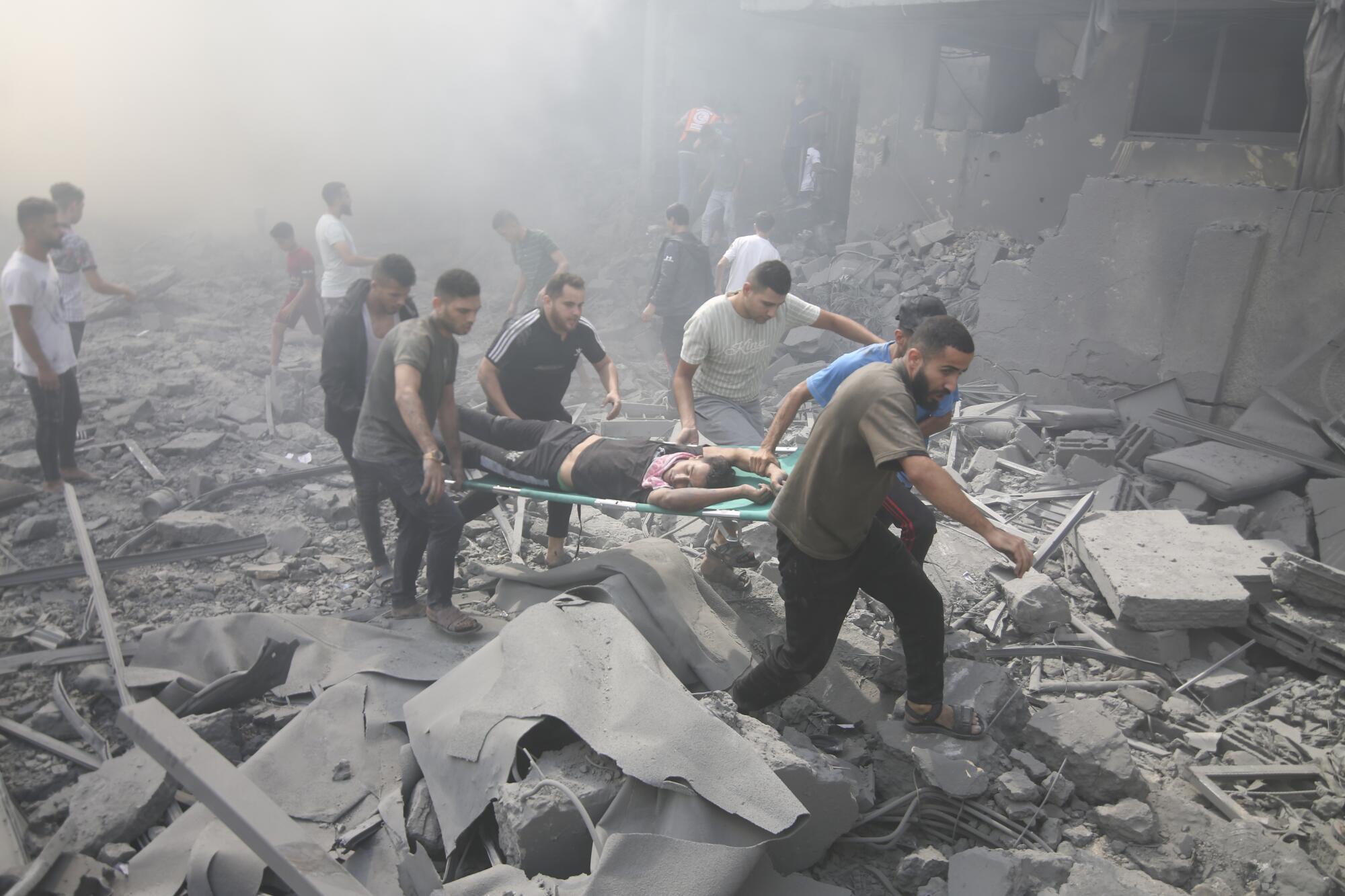
For many Israelis, their sense of the military campaign in Gaza “is not attached to human faces and human stories and the death toll and hunger and thirst,” said journalist Haggai Matar, whose online magazine +972 is one of the few Israeli news outlets highlighting the Palestinian experience of the war.
“The whole world is seeing what’s actually happening in Gaza,” he said. “But Israelis are not.”
The reasons are layered, linked to the nationalistic, war-time mind-set that has gripped much of the country as well as an unprecedented government campaign to stifle critiques of the conflict.
There’s also the fact that few here have ever had contact with Palestinians in Gaza, thanks to a blockade that Israel put in place in 2007 to vastly limit the movement of goods and people in and out of the enclave.
And then there’s the question of trauma.
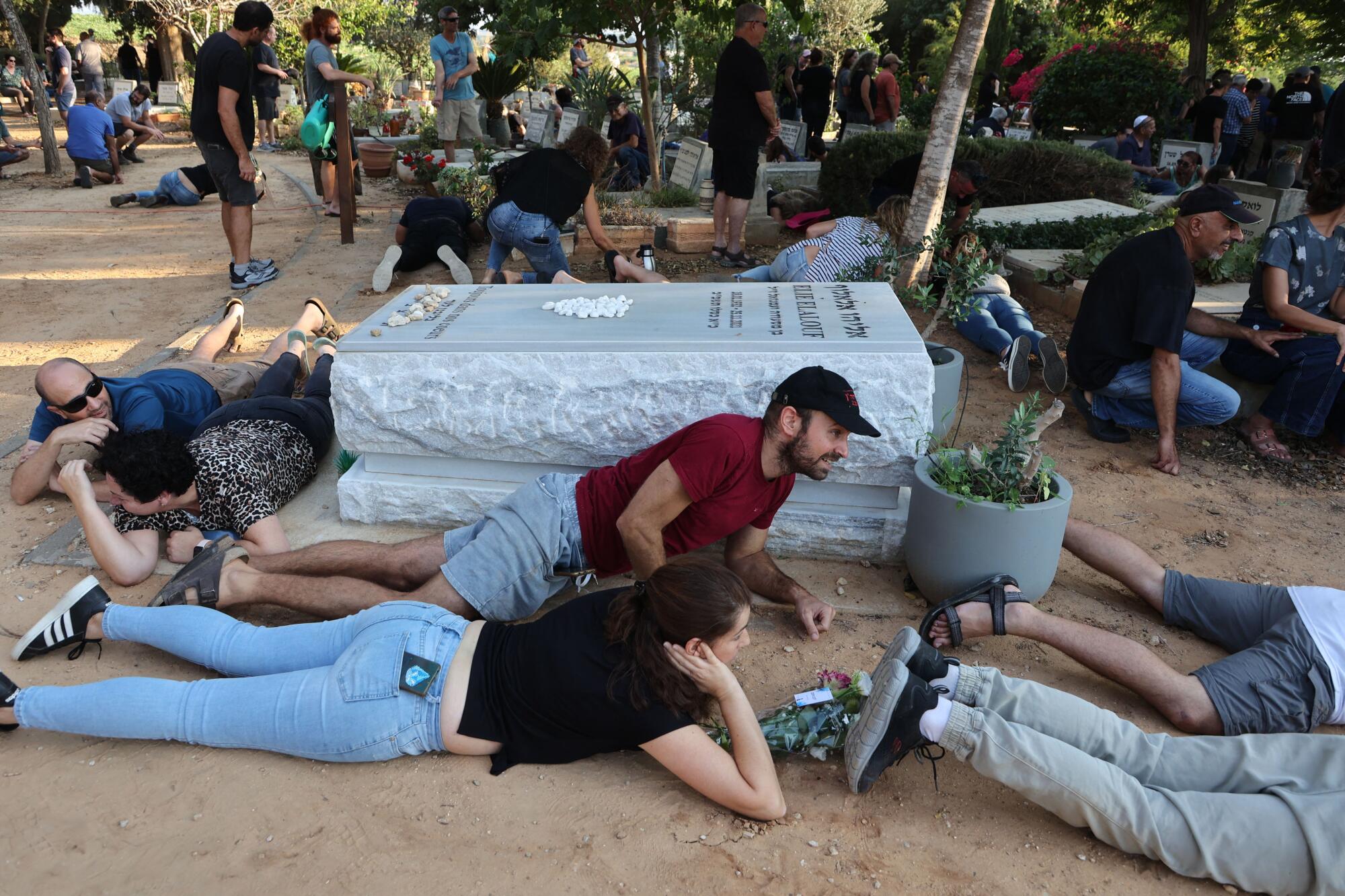
Many Israelis are still raw from the attacks on Oct. 7, their sense of safety and trust in their government punctured, their empathy for others scant.
“I’m sorry about the civilian population there, but after Oct. 7 my grandson spent nights sleeping in a bomb shelter,” said 69-year-old Dalit Srebrnik, who on a recent rainy evening huddled with her husband in Tel Aviv at an event marking 100 days since the hostages were taken to Gaza.
“It is a war,” she said. “And in war both sides get wounded.”
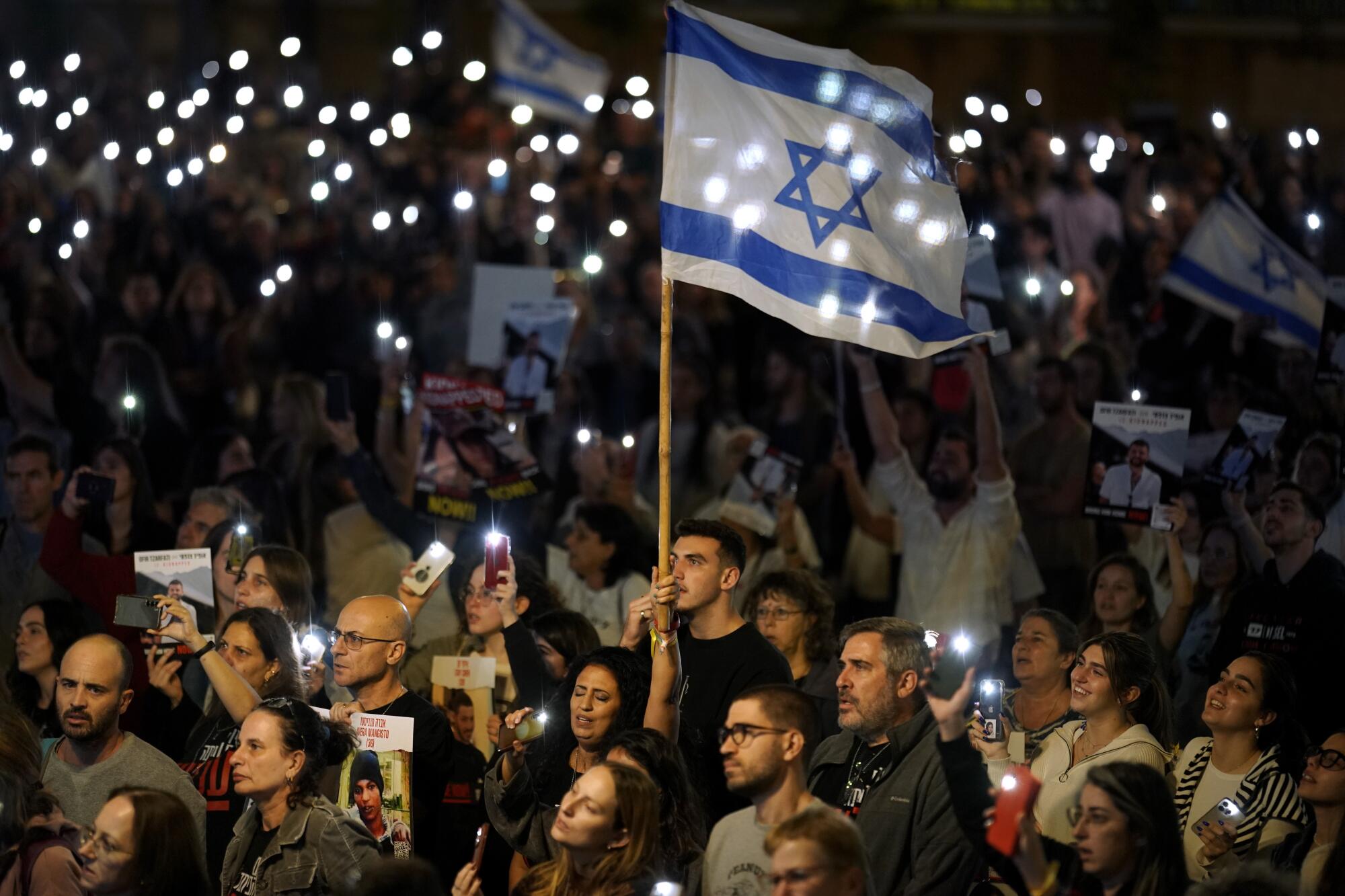
Public disconnect with the plight of civilians in Gaza has put Israel out of step with much of the rest of the world, where many increasingly see Israel’s response to the Hamas attack as excessive.
Globally, international support for a cease-fire has surged as the civilian cost of Israel’s ground and air offensive has come into focus. With Gaza health authorities reporting more than 25,000 Palestinians killed — including 16,000 women and children — experts say the siege has been one of the deadliest, most destructive military campaigns in recent history.
Abdullah Alathamna’s family suffered when Israel shelled his family’s Gaza home in 2006. Now a father, he fears for his daughters. ‘I want to protect them,’ he says. ‘But I cannot.’
Outside Israel, scenes of bloodied, shell-shocked children have circulated widely online, enlisting a new generation of young people into the Palestinian cause. Meanwhile, media here is more typically dominated by homages to Israeli soldiers, often set to one of the country’s most popular new songs: a pro-war hip-hop anthem whose lyrics warn, “We have brought the whole army against you, and we swear there will be no forgiveness.”
When South Africa filed a genocide case against Israel at the International Court of Justice this month, the reaction here was not just anger and charges of antisemitism, but incredulity. The front page of the Jerusalem Post featured a picture of the bodies of children killed during the Hamas attack with a question: “Isn’t this the true face of genocide?”
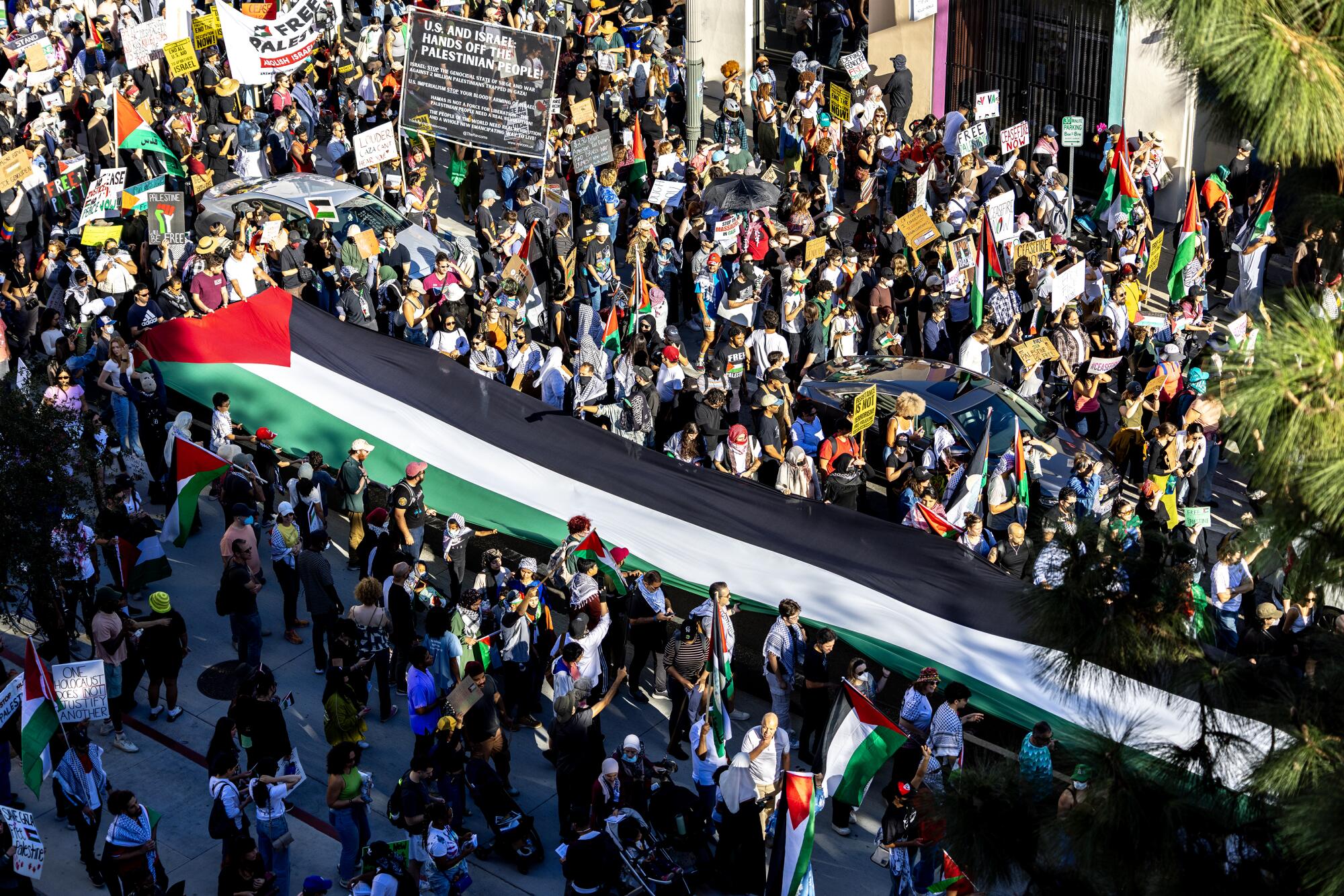
“A lot of us here are very angry because the world seems to be looking at this upside down,” said Oded, a tech worker who asked to be identified only by his first name because of the sensitive nature of the topic.
“It is a tragedy,” he said of the wide-scale destruction in Gaza. “I’m not saying it’s not.”
“But the problem I think people have here is on the one hand, we feel sorry for them, but on the other hand, we’re wondering how they feel. Do most civilians in Gaza support Hamas? And if so, aren’t they an enemy in themselves?”
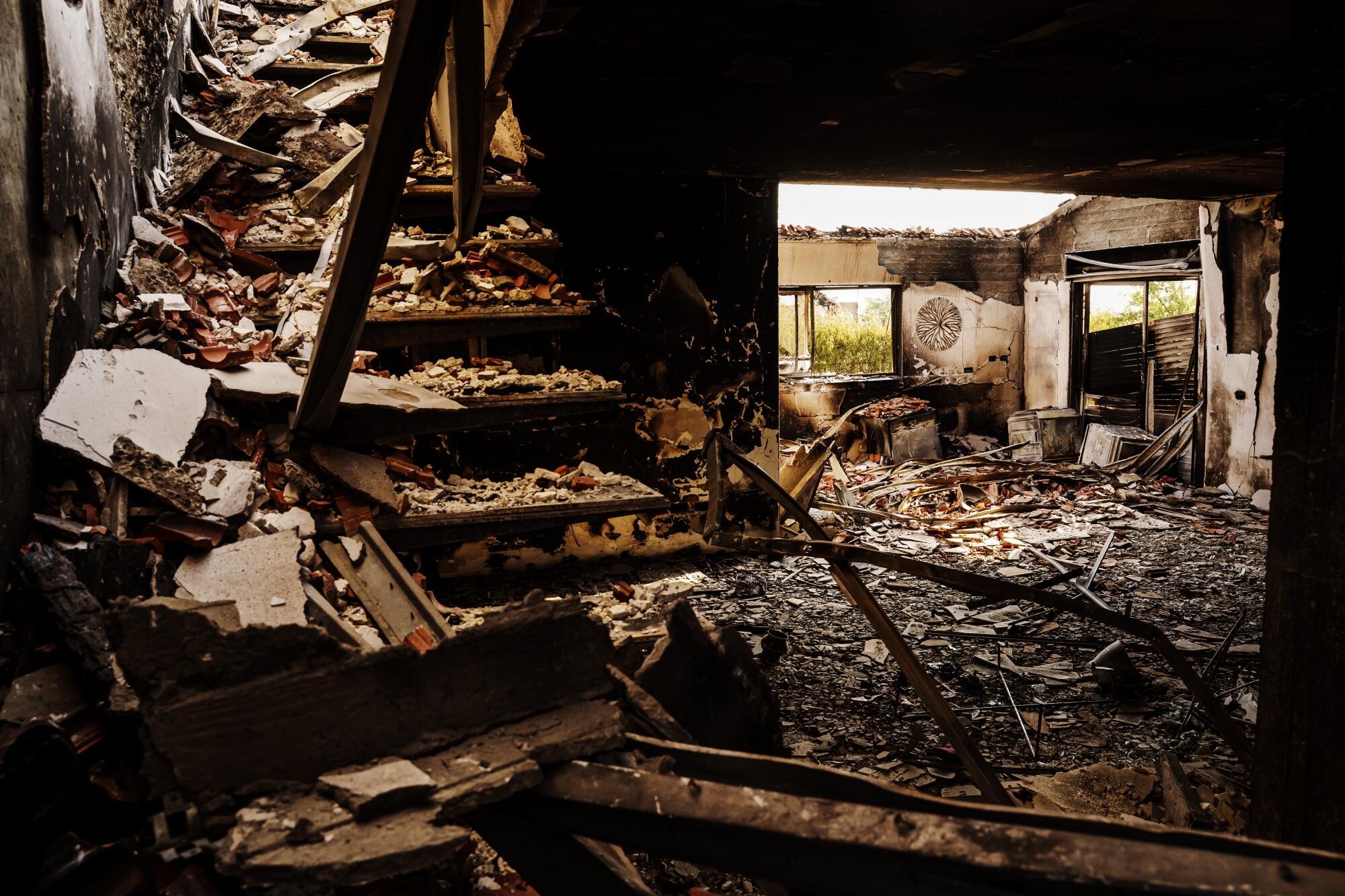
Amira Haas, a reporter for the left-leaning Haaretz newspaper who covers the occupied Palestinian territories, said it’s not unusual in war for one side to minimize the suffering of the other.
“Its natural for people to not want to know,” she said.
But she believes Israelis’ ability to look away now is part of a larger problem: a deepening disconnect among many here from the harsh reality of Israel’s occupation.
“Most people relate to the Palestinians not as an occupied people, but as a foreign entity hostile to Israel,” Haas said. They see the war with Hamas as less of a conflict with historical antecedents, she said, and more as part of a “universal fight against terror.”
Palestinians in Jenin refugee camp, a center of West Bank resistance, say repeated Israeli raids appear intended to make their city as uninhabitable as Gaza.
She blames that detachment in part on Israeli journalists who have retreated from covering the occupied territories. And during wartime, she said, many journalists seem to think it’s their job to support Israel’s war effort.
One journalist, Ben Caspit, recently said on Twitter that Israeli media shouldn’t cover Gazans at all.
“Why should we turn our attention [to Gaza]?” Caspit wrote. “They’ve earned that hell fairly, and I don’t have a milligram of empathy.”
Meanwhile, the small number of Israelis seeking to raise awareness about the plight of civilians in Gaza have faced heavy criticism and more by Israel’s right-wing government. National Security Minister Itamar Ben-Gvir has labeled those calling for peace: “enemies within.”
A month after Hamas’ surprise attack nearly brought Israel to its knees, the country’s battered ‘peace camp’ is rising — or trying its best to do so.
Inside a cramped office tucked behind a hardware store in Tel Aviv last week, a group of Arab and Jewish activists were readying for a protest march, prepping banners that read, “Only peace will bring security.”
The activists, who belong to a group called Standing Together, were on edge.
“We’re worried about police brutality, and we’re worried about right-wing violence,” said Alon-Lee Green, the group’s national co-director.
Police had refused to issue the group permits for a previous planned march. This one had been allowed by the High Court of Justice after civil rights attorneys intervened. At other antiwar rallies across Israel, police have arrested and beaten protesters. In October, Israel Police Commissioner Kobi Shabtai warned that his officers would stop “anyone who dares, in their extreme audacity, to seek approval for holding a demonstration in support of Gaza.”
“For those who want to support Gaza, we will organize a bus for them to the Gaza Strip,” he said.
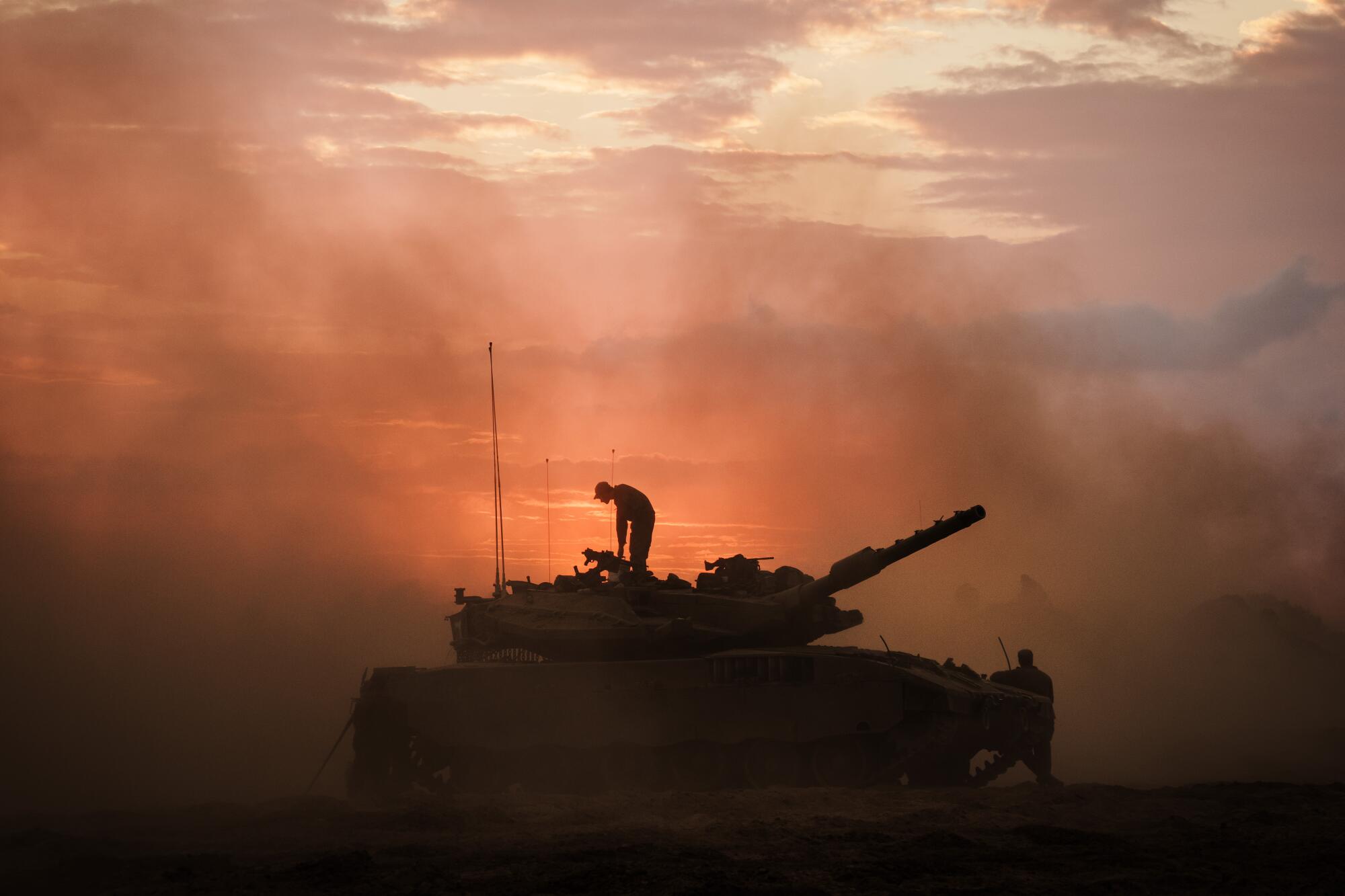
Green said Israel’s government and many of its institutions have embraced a double standard in the months since Oct. 7. Israelis — particularly Arab citizens — have been arrested, expelled from universities and fired from jobs for speaking about the plight of Gazans. But some of the most extreme supporters of the war have embraced violent rhetoric with virtually no consequences.
He cited a radical right-wing group that operates a Telegram channel called “Nazi Hunters,” which has called for the killing of Arab Israelis seen as sympathizing with Gaza.
“You could get expelled from school for saying you sympathize with the children of Gaza,” Green said. “But if you say, ‘Erase Gaza,’ or ‘Everyone there should die,’ you’re fine.”
As night fell, he and his colleagues gathered with a few thousand protesters in a downtown square.
As they marched through the city, they were met by hecklers, including one woman who screamed: “They’re killers, they’re killers. What about the hostages?” An angry police commander ripped off a protester’s knitted hat that featured both the Israeli and Palestinian flags.
Eventually, the group gathered for a round of speeches. One of them called on her fellow Israelis to find compassion. “Why is no one talking about Gaza and the number of people who have died?” she asked. “How can we live with ourselves?”
More to Read
Sign up for Essential California
The most important California stories and recommendations in your inbox every morning.
You may occasionally receive promotional content from the Los Angeles Times.
